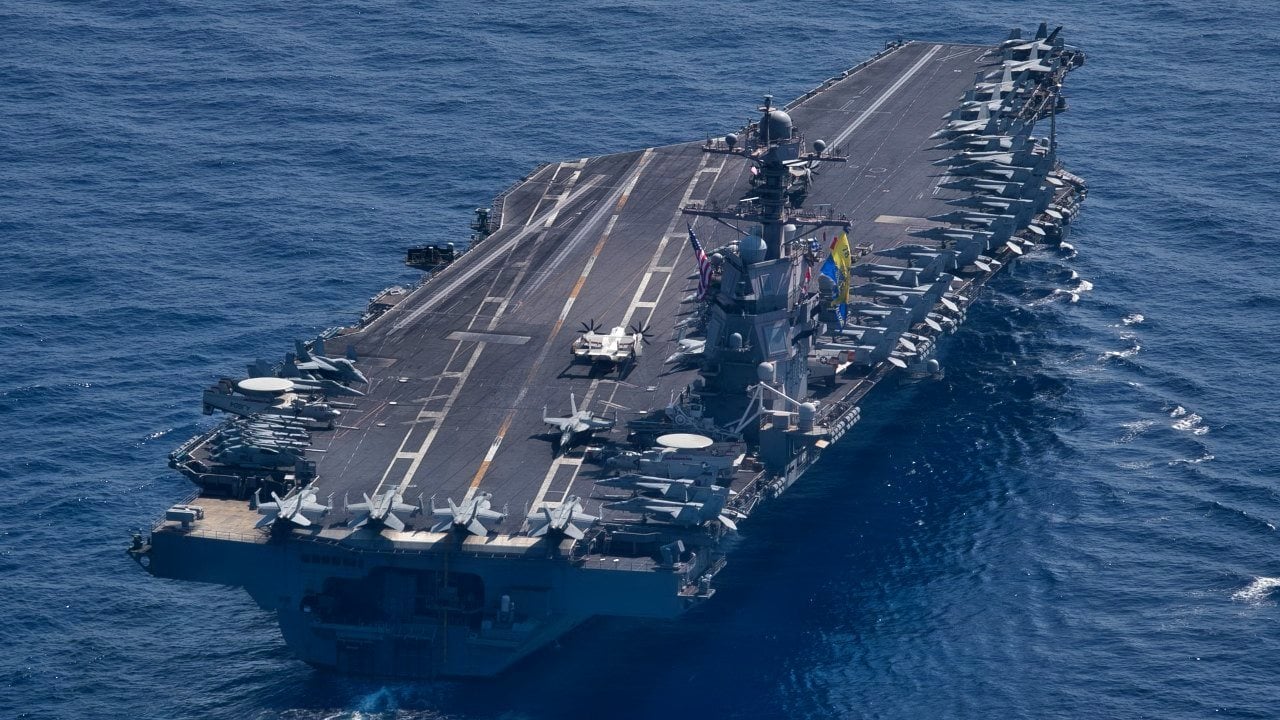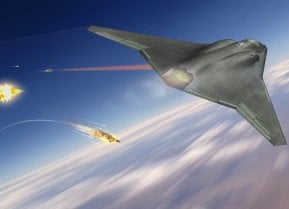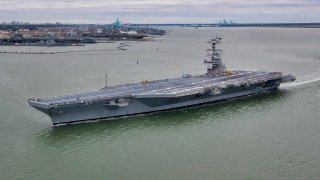The U.S. Navy's Aircraft Carrier Nightmare Has Just Begun
The U.S. Navy's aircraft carriers are in high demand as global tensions rise, raising concerns about whether the U.S. has enough to meet its security commitments. With 11 supercarriers, the U.S. leads the world in carrier strength, but ongoing deployments, especially in the Middle East and Indo-Pacific, are straining resources.
Summary and Key Points: The U.S. Navy's aircraft carriers are in high demand as global tensions rise, raising concerns about whether the U.S. has enough to meet its security commitments.
-With 11 supercarriers, the U.S. leads the world in carrier strength, but ongoing deployments, especially in the Middle East and Indo-Pacific, are straining resources.
-Some argue that the issue isn't the number of carriers but rather the overextension of U.S. security commitments.
-With the immense costs of building, maintaining, and operating these carriers, the U.S. might need to be more selective in how and where they are deployed.
Does the U.S. Have Enough Aircraft Carriers for Global Security?
US aircraft carriers have been in high demand as tensions rise globally, raising questions about the availability of the world’s most expensive warships: does America have enough aircraft carriers?
Secretary of Defense Lloyd Austin has ordered the USS Abraham Lincoln to the Middle East, to provide relief for the USS Theodore Roosevelt, and standby as the Israel-Hamas crisis rages and as Houthi rebels target commercial shipping off the coast of Yemen. The US Navy’s commitments to Middle Eastern waters have strained the ability to maintain a presence in the Indo-Pacific. The USS George Washington is scheduled to arrive in Japan soon, but not before a coverage gap, suggesting that the US may not have enough carriers to uphold its security commitments.
But perhaps the problem is not a lack of carriers to uphold America’s security commitment; the problem is an overextension of security commitments.
Aircraft Carriers: How Many Is Too Many?
The US has the largest carrier fleet in the world; with a fleet of eleven supercarriers, no other nation comes close. China holds a distant second concerning carrier fleet size, with a fourth carrier under construction, but not only is China far behind concerning quantity, but in quality too.
Indeed, the US stands alone in carrier production. And at several billion dollars per carrier (the new Ford-class costs thirteen billion per carrier), the US investment in her carrier fleet is astronomical. The several billion dollars spent on building the carriers are just the upfront costs. Training and maintaining a carrier crew, which can number as high as five thousand sailors per ship, is another massive cost associated with the carrier. Outfitting the carrier with several dozen aircraft, like the $65 million F/A-18 Super Hornet, is another associated cost. The true cost of operating a single supercarrier far exceeds the price tag. The cost, multiplied by eleven, is hard to comprehend.

Still, despite the investment, some pundits are calling for more aircraft carriers. I can appreciate the appeal of having infinite aircraft carriers on call, ready to provide oversight and influence anywhere in the world all at a moment's notice, but if the eleven carriers on hand are not sufficient to meet our stated needs, then these calls need to be reevaluated
.The primary objective of our standing military should be to maintain our territorial integrity and to keep us safe. To an extent, keeping the US population safe may include interventions abroad, or providing subtle influence through a carrier presence abroad. But the US could probably afford to be more selective in the way that carriers are deployed. Conceptually, an aircraft carrier deployment should relate directly to keeping America safe. And what precisely keeps America safe should be interpreted narrowly enough that having eleven aircraft carriers on call is sufficient.
The US taxpayer should not be expected to fit the bill for the expansion of an aircraft carrier fleet that is already the world’s largest.
About the Author: Harrison Kass
Harrison Kass is a defense and national security writer with over 1,000 total pieces on issues involving global affairs. An attorney, pilot, guitarist, and minor pro hockey player, Harrison joined the US Air Force as a Pilot Trainee but was medically discharged. Harrison holds a BA from Lake Forest College, a JD from the University of Oregon, and an MA from New York University. Harrison listens to Dokken.
Image Credit: Creative Commons and/or Shutterstock.


